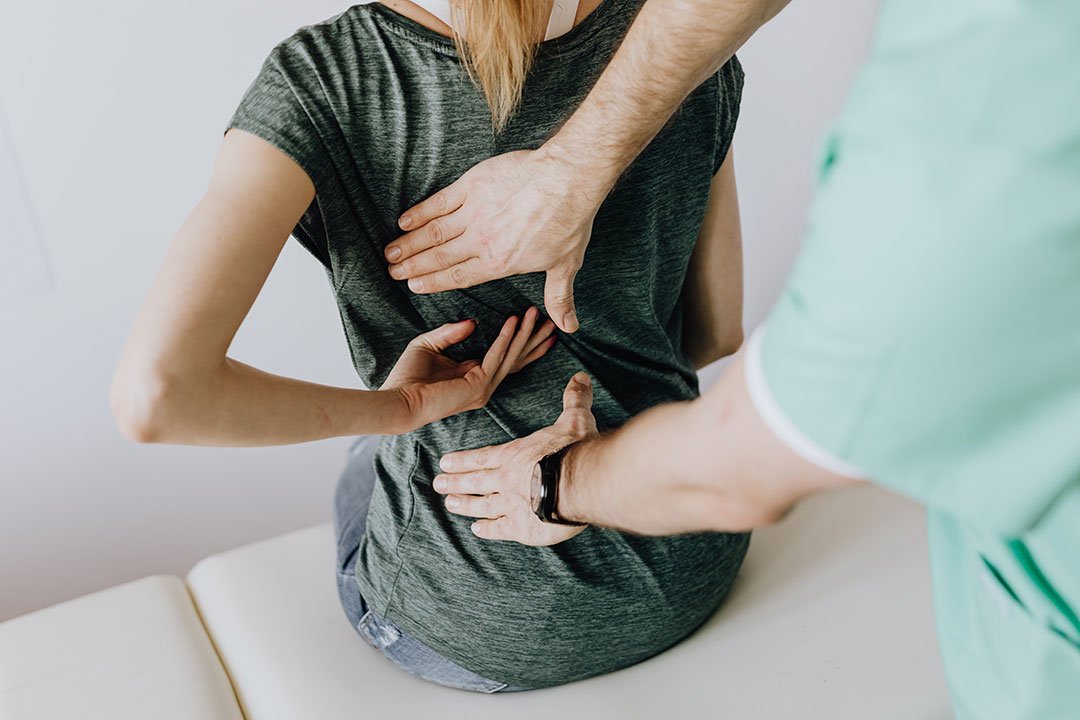Lajpat Nagar Metro Station, Block M, New Delhi, 110024
|096506 82102

Back Pain During COVID-19
The COVID-19 pandemic has seen an increase in cases of back pain among
individuals due to various factors such as sedentary lifestyles, stress, and limited
access to proper medical care. The combination of extended periods of sitting, lack of
physical activity, and heightened stress levels has contributed to the exacerbation of
back pain symptoms.
Managing back pain during these times requires a comprehensive approach,
including ergonomic adjustments for remote work setups, regular stretching and exercise
routines, and seeking telemedicine consultations when necessary. It's essential to
prioritize self-care and seek professional guidance to alleviate back pain symptoms
effectively.
COVID-19 and Back Pain
We understand the impact of COVID-19 on back pain management. Our spine specialists may recommend when conservative treatments fail to deliver desired outcomes. Early surgery may be recommended for the following symptoms:
- 1. Foot drop or weakness of the leg
- 2.Bowel or bladder disturbance
- 3. Advancing numbness
- 4. Debilitating pain hampering routine activities
- 5. Progressive and recurrent pain after partial improvement
- 6. Lack of improvement or progression of symptoms despite conservative therapy.
→COVID-19 and Back Pain Management
→What to Expect During COVID-19 and Back Pain
→ Guidelines For COVID-19 and Back Pain
Management
Although COVID-19 has added complexity to back pain management, it's essential to take adequate measures to ensure safety during pre-operative care for interlaminar endoscopic discectomy.
- Consult your doctor for an overall health and fitness checkup prior to your surgery appointment.
- Inform your doctor of the medications you are following. Your doctor may advise you to refrain from taking blood thinners and other medicines before the surgery.
- Your specialist shall review your condition and discuss the details of surgery, including physiotherapy, medications, and other surgeries to remove diseased or fusion discs.
- Refrain from taking any food or drink after your dinner the night prior to the surgery day. (Typically after 10 pm).
- You will receive general anaesthesia to ensure the procedure is pain-free and convenient for you.
- Inclusive of the anaesthesia time (in and out), positioning time (in and out), skin preparation, and procedure, the entire surgery will take a few hours.
- Once the procedure is complete, your doctor will help you recover from the anaesthetic effect.
- You will be wheeled to the recovery room and kept under observation for an hour, after which you will be shifted to the ward.
- You might experience post-operative pain. Our doctors will prescribe adequate analgesics for that.
- Our goal is to mobilise you and get you back on your feet the same day. Our physiotherapy team shall give you all the guidance and encouragement you need.
- Any urinary catheters placed during the surgery (for some cases) will be removed once you are mobile.
- You may experience some stiffness or soreness in the operated site. You may also experience numbness in your legs. However, these side effects will gradually subside.
- Your post-operative hospital stay depends on your recovery process. However, most patients return home the following day.
- Our clinical team will dress your wound with a waterproof dressing and guide you on changing it every alternate day.
- Kindly schedule follow-up appointments after Week 1, Week 6, and six months after your surgery.
- Make things convenient for yourself at home. Keep your personal items and medications within reach to avoid straining your back.
- Maintain an organised atmosphere by removing any clutter or furniture that may cause unwanted accidents.
- Arrange for a family member or friend to provide post-surgical care after your return home.
Understanding the Relationship Between COVID-19 and Back Pain
Studies suggest
that COVID-19 infection can exacerbate existing back pain or trigger new
episodes of back pain. This could be due to various factors, including
prolonged periods of inactivity during illness, changes in posture, or
indirect effects of the virus on the musculoskeletal system.
COVID-19 medications are primarily focused on treating the viral
infection and its symptoms. While they may indirectly help alleviate
back pain if it's related to the illness, specific medications for back
pain relief should be discussed with a healthcare professional.
Individuals with
back pain should take extra precautions during the COVID-19 pandemic to
prevent exacerbation of their condition. This includes maintaining good
posture while working from home, engaging in regular stretching exercises,
and seeking telemedicine consultations if experiencing severe pain or
discomfort.
